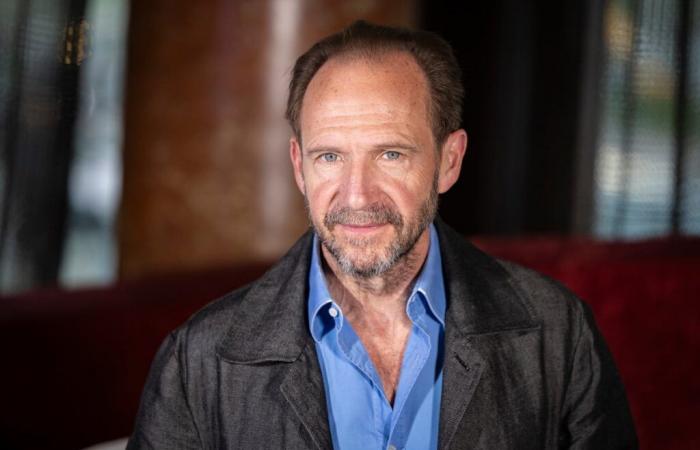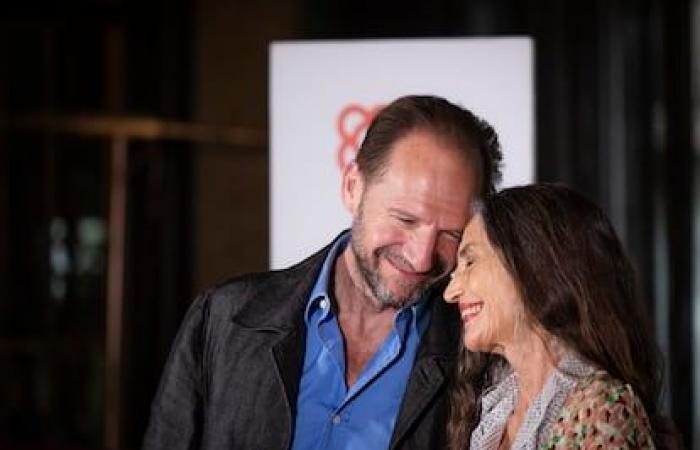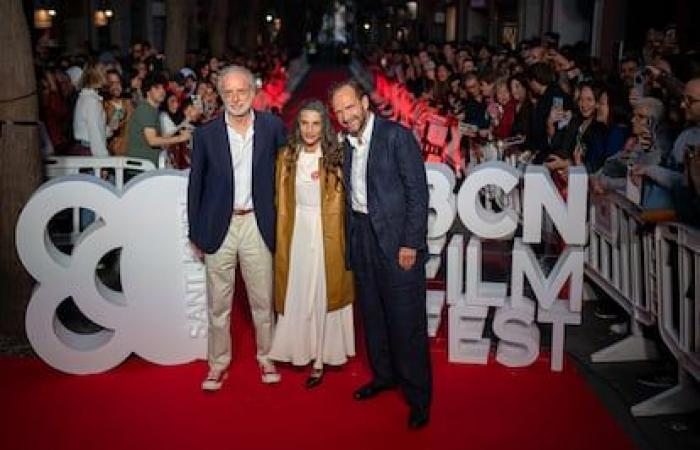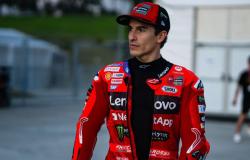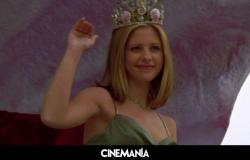In the XXI song of the Odyssey, Ulysses (Odysseus) is shown as the only one capable of hunting and tensing his old arch to overcome the evidence that reveals him spectacularly to his wife and kingdom’s suitors, whom he will later massacre. That moment of reunion with the formidable weapon is one of Homer’s peaks (and see that he has the bard): “Thus without effort he armed his great Odysseus arch. Grabbing the nerve (of the rope) proved it. The rope resonated acutely, with a chillido similar to that of a swallow.” The scene is also excited and fundamental in The returnUberto Pasolini’s extraordinary film that recreates the final part of the Odyssey And that Ralph Fiennes stars like a strange ulises, full of physical and moral scars, with eyes even full of Troy blood, and that, however, recovers its integrity and power with the arc in their hands.
In the film, he still hides his identity, the protagonist says ironically when he sustains it: “One does not have the opportunity to try the arch of Ulysses every day.” Fiennes (Ipswich, United Kingdom, 62) smiles slightly with a kind of Homeric ferocity when asking, from archer to archer, who says what he felt when he took the arch of Ulysses in his hands, even if it was not, of course, the real one.
“It’s a good question, for me the arch is a fundamental point,” he says. “We have a man who comes from the war, physical and psychologically wounded, with doubts about his identity and on a trip in search of a purpose. The arch is a very powerful symbol. Ulysses’s is a youth gift, it represents something very pure, the possibility of the accurate shot, of reaching the target, the opportunity. There is something incredibly definitive in the arch. The lost and broken personality of Ulysses is recovered when he takes. Building it and shooting it in a perfect shot is recomposed to itself, it aligns inside.
Fiennes, who on Thursday night presented The return In the BCN Film Fest in a gala in the Verdi cinemas in Barcelona in which the Festival’s Honor Award was given (he traveled in the crowd the red carpet between shouts of “Ralph!”, “Ralph!”, and even a sense “Ralph Papa!”, And a holiday “After the blackout, here comes Valdemort!”) Long, horn, spectacular, “magnificent.”
The actor, interviewed this noon at a Barcelona hotel next to Pasolini (Rome, 68 years), evokes the moment – impressive in the film – in which Ulysses, dropping the mantle, tense the arch, shoots it, wins the test, and then a aljaba full of funeral dartos is placed and points to the suitors (“To the suitors they flooded them. changed the color, ”says Homer). “I practiced the archery. They really scared the filming, and it doesn’t surprise me,” he laughs. “In most sets do not notice the drama, everything is done in pieces, but in this set there was a lot of intensity and that moment was tremendous.”
To The return, in which Fiennes coincides with Juliette Binoche (Penelope) after Borrash peaks y The English patient (Now, and the joke is worth, the patient is her), the actor has undergone special training in order to achieve a body that curiously is both old, devastated, and nervous and muscular: the body of a great tanned warrior in a thousand battles. “I went to the gym, but above all my coach killed me,” explains Fiennes, who despite considering that the audience not only reads despair, tiredness and defeat of Ulysses in his body, “but especially in your eyes, where you manifest your soul.” The actor points out that with the director they agreed that the physical presence of Ulysses should be very eloquent. “It was very important for the outside to reflect the interior, the hardness of lived experiences, violence, torment, tear.” They both agree that their Ulysses, which has poured so much blood and seen so much death, expresses what we could describe as posttraumatic war stress syndrome, Troy version.
Pasolini (which despite being a relative of Pier Paolo, but, curiously, of Visconti, a very pierpaolopasolinian film serves, In his characters and his textures), he emphasizes the privilege of having veteran interpreters such as Fiennes, Binoche and Ángela Molina (a splendid Eurict that embroiders the scene in which he recognizes Ulysses for the scar that leaves him in the knee a wild boar in a hunt in the Parnassus).
“This is my fourth movie and when I thought of what they have done they saw that I had to leave them very loose.” Pasolini is clear why return to Odyssey. “Why not? It influences us, he still speaks to us, he question us.” He says there is a place for all, in reference to the film prepared by Christopher Nolan with Matt Damon as Ulysses. But, he warns, that no one expects to see Polyphemus here (although at one point the Ulysses of Finnes is presented, in a wink, like “nobody”), nor to the sirens, “there is nothing like that, this is not the 1954 movie with Kirk Douglas and Silvana Mangano, so whoever asks to return to him the money,” he jokes. And is that The return It is concentrated in the final stretch of the Odysseyfrom the return of a tormented Ulysses to Itaca and instead of the wooden horse (to which there is a small reference in a conversation by fire) and the Trojan taking we have the wonderful glaucos eyes of finnes, so expressive, and the moving look of recognition of the Sarnoso and dying Argos.
It is a film, its director, essential and very sober, emphasizes, which breathes Mediterraneidad -it is filmed in Corfú and the Peloponnese: the acropolis of Ithaca is Chlemousi’s castle, disconcertingly medieval. “The Odyssey It tells me a lot from a young age, so it was the adventures and trips that most interested, but that is only part of the work, and when I get older, I am more interested as a family that tries to rebuild after 20 years of war. That second part of the Odyssey It is more universal, we are all children, husbands, fathers and mothers. And there is my attempt to talk with Homer, to dialogue with his work. ”
Fiennes says for his part that he has always been interested in classical history and Greek myths -his mother read him Odyssey as a child- and that he liked the script of The return that it was not about making a classic hero but “a psychologically exhaust man, a tired warrior” in a Odyssey “Without gods or monsters.”
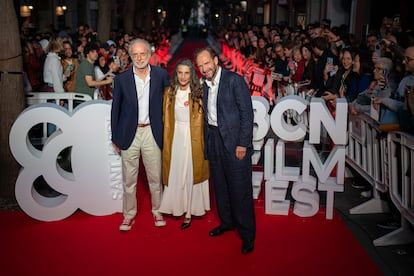
Natural, although remarkably attract Schindler’s list; The romantic Count Almás, of The English patient, and Cardinal Lawrence, from conclave, Without forgetting what Moriarty has been, M in the James Bond saga; Oneguin, Coriolano, Hamlet, Macbeth … and even the Lawrence of Arabia (in the 1992 television production about their participation in the Versailles Conference), translator of the Odyssey by the way. What is it like to live with all those people? Are they still there? “When you do a character you stay inside, and there is always something you can stretch to make it return, something in your memory, in your psyche.”
Do you remember something special from your Almásy character? The actor thinks a moment when everything fits, the dunes, the airplane, Herodotus and the Nana Hungarian. “I liked how antisocial it was,” he says. “There is that scene that goes by car for the desert and tells Katharine, the character of Kristin [Scott Thomas]’Once I traveled with a guide that did not speak to me in nine hours, it was a good day’, a subtle way to tell her to shut up. He is a difficult man, full of love and desire, a man accustomed to control in his life and who has to face an unexpected passion. I love that character, yes. “Better the stormy characters?” All human beings are complex, and the luminous ones also have their dark side. I want to understand them all. ”
On the Oscar nominations he says they are something fantastic, but that it makes you “very exposed.” What do you think of the conclave? Does life mimic art? “Well, everything has been very surprising. Of course I will follow the conclave in a way that did not wait for me before making the movie. I would not have believed that I was so interesting.”
Shakespeare or Homer? Fiennes passes Pasolini. “And why not both?

